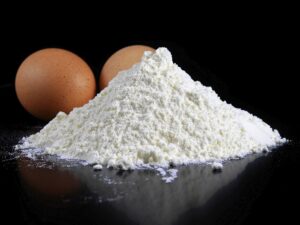As you age, protein becomes an even more important part of your diet. Our bodies digestion and absorption decline as we age, making it more difficult to get the protein our bodies need. Protein is essential for good mental function and keeping muscle on the bones.
What is protein?
Protein is a macronutrient that is essential for the human body. It is made up of amino acids, which are the building blocks of cells and tissues. The body needs protein to build and repair muscles, bones, skin, and blood. It also uses protein to make enzymes, hormones, and other chemicals. Protein is an important part of a healthy diet, and it can be found in meats, poultry, fish, eggs, dairy products, legumes, nuts, and seeds. The recommended dietary intake for protein is 0.36 grams per pound of body weight (0.8 grams per kilogram). For example, a person who weighs 150 pounds (68 kilograms) should consume 54 grams of protein per day. Those that lift weights and are trying to gain muscle will need to consume 1 gram per pound of body weight.
The benefits of protein
- Protein is essential for building muscle
- Protein can help you lose weight or maintain your weight
- Protein helps keep you fuller longer
- Protein is a good source of energy
- Protein can improve mental functions
Protein powder is an easy and popular dietary supplement that is often used by athletes and bodybuilders to help improve muscle mass. Also, Protein powders can be consumed by older individuals who are looking to improve energy, mental function and slow muscle loss. Protein powder can also be beneficial for people who are not highly active. One of the main benefits of protein powder is that it is a quick and easy way to increase your protein intake. Protein is an essential nutrient that helps to build and repair muscle tissue, and it can also be used as a source of energy. Additionally, protein powder can help you to feel fuller for longer, making it an ideal supplement for weight loss when restricting your diet and help you build more muscle when added to bolster protein intake. Another benefit of protein powder is that it tends to be very low in calories and fat, making it a healthy option for those who are watching their weight.

Pea protein powder is an increasingly popular form of protein, and for good reason. Pea protein is a complete protein, meaning that it contains all of the essential amino acids that your body needs. It is also low in fat and calories, making it an ideal choice for those who are trying to lose weight. In addition, pea protein is easy to digest and does not contain any allergens, making it a safe choice for those with food allergies. Pea protein powder can be added to smoothies, pancakes, and other recipes, or simply mixed with water or milk for a quick and easy protein shake. With so many benefits, it’s no wonder that pea protein powder is becoming the preferred form of consumable protein for so many people.
Elderly individuals need more protein
This is because as we age, our body’s ability to digest and absorb protein declines. This means that it becomes more important to get enough protein in our diets as we age in order to maintain good mental function and muscle mass.
If you want to reduce mental decline, consume more protein.
A recent study has found that people who consume more protein have better mental function as they age. The study followed over one thousand individuals for twenty years and found that those who consumed more protein had better cognitive function, including memory and executive function, than those who consumed less protein. This is likely due to the fact that protein is essential for maintaining the structure and function of the brain.
Protein can help you maintain muscle mass as you age
As we age, we lose muscle mass. This process, known as sarcopenia, can lead to frailty and a decrease in quality of life. However, consuming enough protein can help to slow down or even prevent sarcopenia. A recent study found that elderly individuals who consumed more protein had less muscle loss than those who consumed less protein. This is likely due to the fact that protein is essential for maintaining muscle mass.

Also, consider taking digestive enzymes like betaine HCL so you ensure your protein consumed is digested.


Leave a Reply